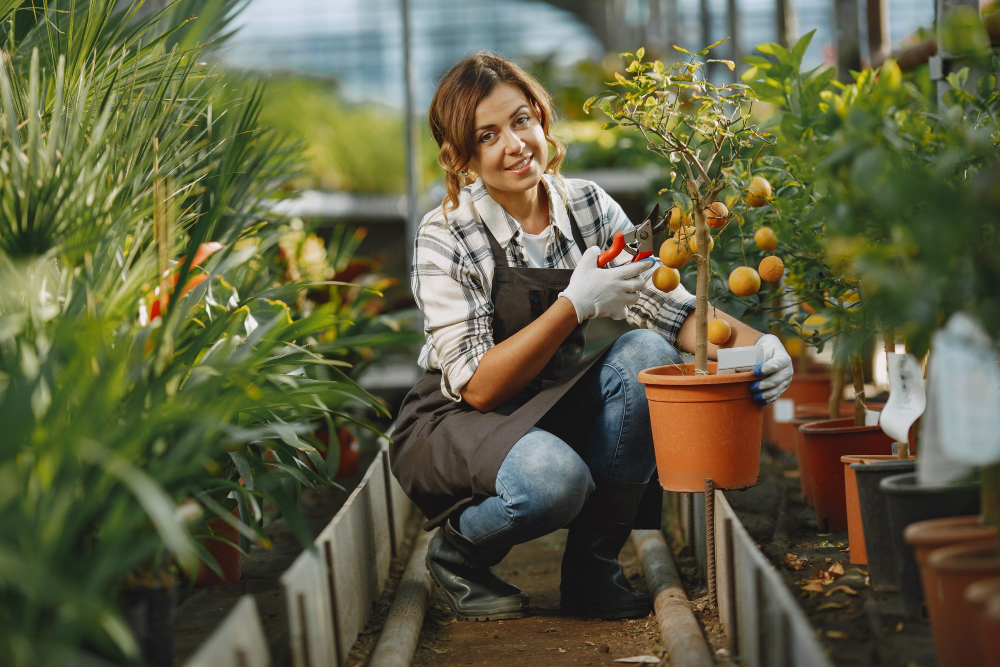Subtitle 1: Introduction to Organic Gardening
Organic gardening has gained popularity in recent years as people become more conscious of the impact of chemicals on their health and the environment. It involves growing plants without the use of synthetic fertilizers, pesticides, or genetically modified organisms (GMOs). Instead, organic gardeners rely on natural methods to nourish and protect their plants. If you have a backyard, organic gardening can be a rewarding and sustainable hobby that offers numerous benefits.
Subtitle 2: Health Benefits of Organic Gardening
One of the primary benefits of organic gardening is the ability to grow and consume fresh, nutritious produce. By avoiding the use of synthetic chemicals, organic gardeners can ensure that their fruits and vegetables are free from harmful residues. This means that you and your family can enjoy food that is not only delicious but also healthier for your bodies.
Organic gardening also encourages physical activity. Tending to your garden, planting seeds, weeding, and harvesting require physical exertion, which can contribute to improved fitness levels. Spending time outdoors and connecting with nature has been shown to reduce stress and improve mental well-being.
Subtitle 3: Environmental Benefits of Organic Gardening
Organic gardening is environmentally friendly and promotes sustainability. By avoiding the use of synthetic fertilizers and pesticides, organic gardeners help protect the soil, water, and air from pollution. Chemical fertilizers can leach into groundwater, causing contamination, while pesticides can harm beneficial insects and wildlife.
Organic gardening also supports biodiversity. By creating a habitat for beneficial insects, birds, and other wildlife, organic gardens contribute to the overall health of ecosystems. Additionally, organic gardening practices promote soil health by encouraging the growth of beneficial microorganisms and improving soil structure.
Subtitle 4: Cost Savings and Food Security
Another advantage of organic gardening is the potential for cost savings. By growing your own food, you can reduce your grocery bill and have access to fresh produce throughout the growing season. Organic produce can be expensive in stores, but by growing it yourself, you can enjoy the benefits without the high price tag.
Organic gardening also contributes to food security. In times of uncertainty, having a backyard garden can provide a reliable source of fresh food. By growing your own fruits and vegetables, you become less dependent on external food sources and have greater control over the quality and safety of your food.
Subtitle 5: Connecting with Nature and Teaching Opportunities
Organic gardening offers a unique opportunity to connect with nature and gain a deeper understanding of the natural world. By observing the growth cycles of plants, learning about soil health, and interacting with the ecosystem in your backyard, you can develop a greater appreciation for the environment.
Furthermore, organic gardening can be a valuable teaching tool for children. Involving them in the gardening process can teach them about the importance of sustainable practices, the value of hard work, and the joy of growing their own food. It can also foster a sense of responsibility and stewardship towards the environment.
Subtitle 6: Conclusion
Organic gardening in your backyard is a rewarding and sustainable practice that offers a multitude of benefits. From improved health and environmental conservation to cost savings and food security, organic gardening allows you to enjoy fresh, nutritious produce while minimizing your impact on the planet. So, grab your gardening tools and start cultivating your own organic oasis today!











